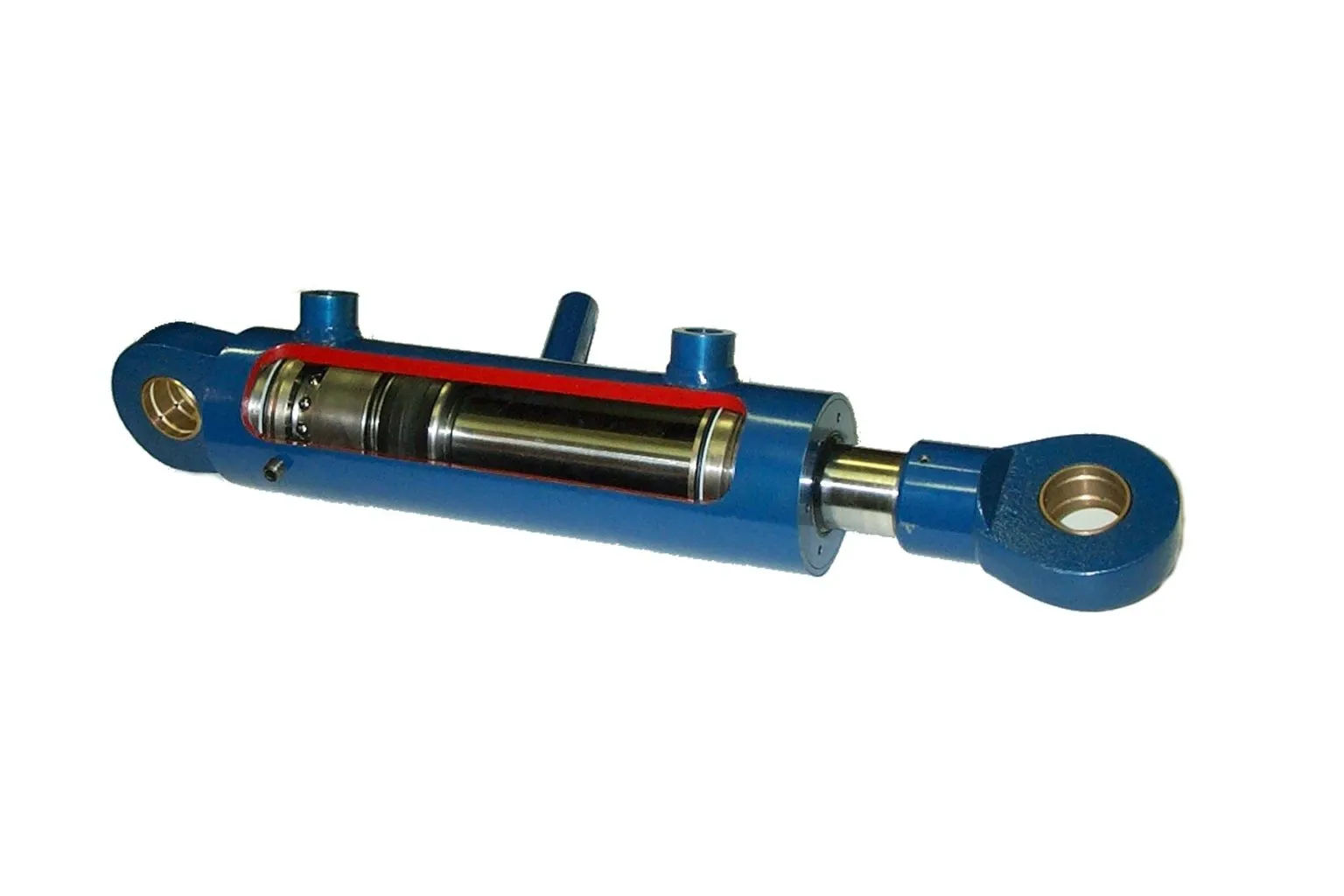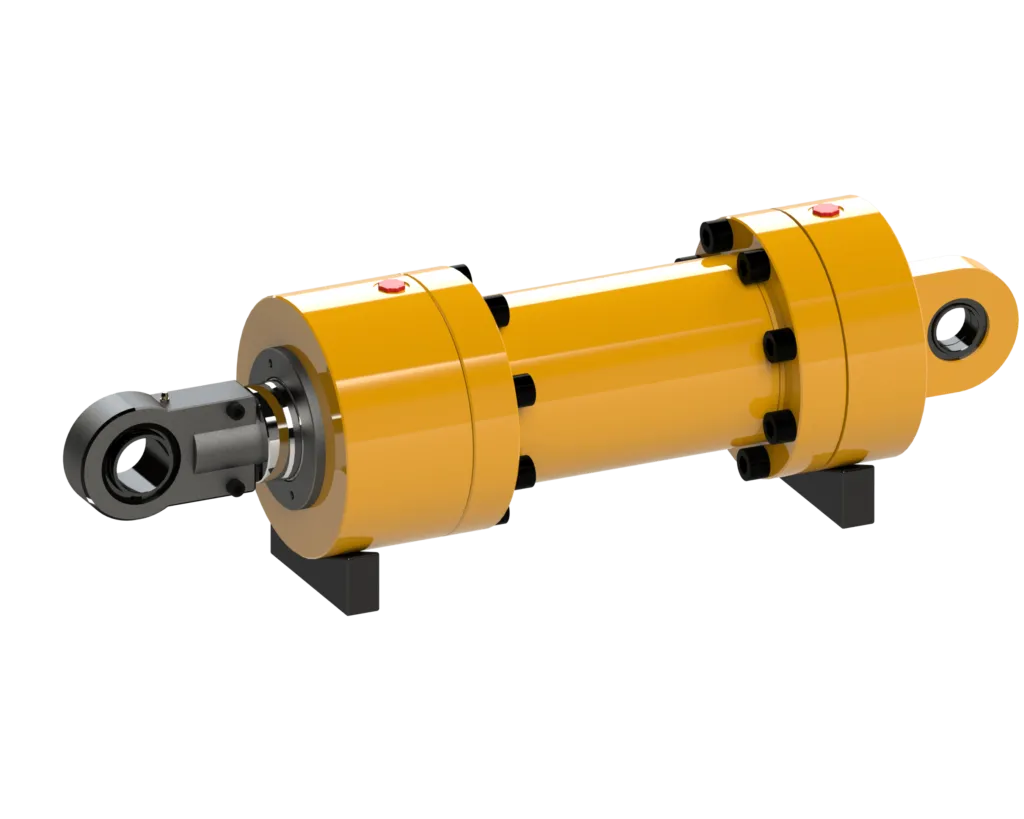Understanding Industrial Hydraulic Cylinder Pressure Rating
In the industrial environment, the term “hydraulic cylinder pressure rating” refers to the maximum pressure that a hydraulic cylinder can handle without causing damage or failure. Hydraulic cylinders are essential components in various industrial applications, providing linear force and motion to machinery and equipment. Understanding the key components and structure of hydraulic cylinders is crucial for ensuring their optimal performance and longevity.
Key Components of Hydraulic Cylinders
Hydraulic cylinders consist of several key components, including a cylinder barrel, piston, piston rod, seals, and hydraulic fluid. The cylinder barrel houses the piston and hydraulic fluid, while the piston rod connects the piston to the machinery being operated. Seals ensure that the hydraulic fluid remains contained within the cylinder, allowing for smooth and efficient operation.

Basic Principle of Control Cylinder Operation
The operation of a hydraulic cylinder is based on the principle of converting hydraulic energy into linear motion. When pressurized hydraulic fluid is applied to one side of the piston, it creates a force that pushes the piston in the desired direction. This movement is controlled by regulating the flow of hydraulic fluid into and out of the cylinder, allowing for precise control and positioning of the machinery.
Types of Hydraulic Cylinders
Single Acting Cylinder
A single-acting cylinder uses hydraulic pressure to extend the piston, with an external force (such as gravity or a spring) retracting it. These cylinders are commonly used in applications where only one direction of force is required.
Double Acting Cylinder
Double-acting cylinders use hydraulic pressure to extend and retract the piston, providing force in both directions. These cylinders are versatile and widely used in various industrial applications.
Telescopic Cylinder
Telescopic cylinders consist of multiple nested stages that extend and retract in a telescoping manner, providing a longer stroke length in a compact design. These cylinders are ideal for applications with limited space.
Differential Cylinder
Differential cylinders have different effective areas on each side of the piston, allowing for varying force outputs depending on the direction of movement. These cylinders are used in applications requiring precise control of force.
Top Five Advantages of Industrial Hydraulic Cylinders
- High force output for heavy-duty applications
- Precise control and positioning of machinery
- Compact design for space-constrained environments
- Smooth and efficient operation with minimal maintenance
- Long service life and durability under demanding conditions
Industries Using Hydraulic Cylinders
Industrial hydraulic cylinders are widely used in various industries, including manufacturing, construction, mining, agriculture, and more. These cylinders play a crucial role in providing the necessary force and motion to power machinery and equipment in these sectors.
Manufacturing Industry
In manufacturing, hydraulic cylinders are used in automated production lines, injection molding machines, and metalworking equipment to perform precise and repetitive tasks.
Construction Industry
In construction, hydraulic cylinders are utilized in cranes, excavators, and bulldozers for lifting, digging, and moving heavy materials and structures with ease.

Mining Industry
The mining industry relies on hydraulic cylinders in drilling rigs, crushers, and conveyor systems to extract and transport valuable minerals efficiently and safely.
Agriculture Industry
Agricultural machinery such as tractors, combines, and irrigation systems use hydraulic cylinders to perform tasks such as plowing, harvesting, and watering crops with precision and efficiency.
Selecting the Right Hydraulic Cylinder
When choosing an industrial hydraulic cylinder for a specific application, factors such as load capacity, stroke length, bore size, and operating conditions must be considered. Matching the performance of the cylinder to the requirements of the application is essential for optimal functionality and longevity.
Maintenance and Care of Hydraulic Cylinders
Regular maintenance and care of industrial hydraulic cylinders are crucial for ensuring their reliable performance and extended service life. Inspection, lubrication, and cleaning are key practices that help prevent premature wear and damage to the cylinders.
Installation Guide for Hydraulic Cylinders
Proper installation of hydraulic cylinders is essential for their safe and efficient operation. Following manufacturer guidelines and using the correct tools and techniques will help ensure that the cylinders are installed correctly and securely.
Maintenance Tasks for Hydraulic Cylinders
When performing maintenance on hydraulic cylinders, it is essential to focus on cleaning, lubrication, and checking for wear. Each of these tasks plays a critical role in preserving the performance and integrity of the cylinders over time.
Fault Diagnosis and Common Problems
Identifying and addressing common issues with hydraulic cylinders, such as leaks, seal damage, or piston misalignment, is essential for maintaining their functionality. Proper fault diagnosis and troubleshooting techniques can help resolve problems efficiently and effectively.
Preventive Measures for Optimal Performance
To minimize potential problems and optimize the performance of hydraulic cylinders, implementing preventive measures such as regular maintenance, monitoring of operating conditions, and timely repairs is essential. These measures help prevent costly downtime and ensure the longevity of the cylinders.
Choosing the Right Industrial Hydraulic Cylinder
Exploring the factors that should be considered when selecting an industrial hydraulic cylinder, such as application requirements, operating conditions, and budget constraints, is crucial for ensuring the right fit and functionality. Understanding these factors will help in making an informed decision.
Long-Tail Keywords and SEO Articles
Industrial hydraulic cylinder pressure rating is a critical factor to consider when selecting the right cylinder for your application. By understanding the pressure requirements and capabilities of the cylinder, you can ensure optimal performance and safety in industrial operations.
Our Company
Our company is a leading hydraulic cylinder replacement manufacturer and wholesale distributor, offering a complete product line for diverse industrial applications. With a focus on quality, reliability, and customer satisfaction, we have established ourselves as a trusted partner in the domestic and foreign markets.
From professional engineering services to international certifications, customized solutions, advanced production equipment, and responsive after-sales support, our company is committed to delivering superior hydraulic solutions tailored to meet the unique needs of our customers.
Author: lyl
